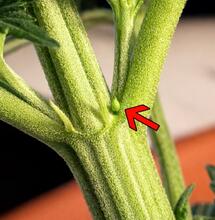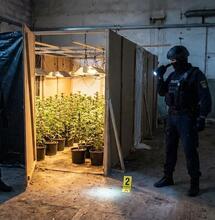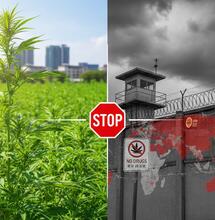Brazilian Supreme Court Decriminalizes Cannabis

Brazil’s top court on Tuesday, June 25, agreed on a decision to decriminalize possession of small amounts of cannabis for personal use. Brazilian lawmakers would still need to determine what constitutes a small amount of marijuana. The historic court ruling could help reduce Brazil’s massive prison population. Brazil is one of the last Latin America nations to decriminalize marijuana.
Brazil’s Supreme Federal Court voted to decriminalize the possession of cannabis for personal use, the national public news agency, Agencia Brasil, reported.
Deliberations on decriminalization began in 2015 and ended on Tuesday with a majority of justices voting in favor of decriminalization. It remains undisclosed how many justices voted for cannabis decriminalization, according to Agencia Brasil.
The justices are still due to determine the upper limit of marijuana that can be considered for personal use. Selling or distributing marijuana remains prohibited in Brazil.
With a population of 203 million, Brazil is currently the largest country in the world to embrace decriminalization, and the latest nod to growing global acceptance of the cannabis plant.
Cannabis Decriminalization May Reduce Number of Prisoners in Brazil
Brazil has the third highest prison population in the world, following behind the U.S. and China who top the list. A significant number of Brazilian prisoners are behind bars because of small possession charges.
There’s still legal work that needs to be done to enforce cannabis decriminalization in Brazil, but once completed it can help the release of thousands of individuals from prison who were put there because of small possession charges.
“The position is clear that no user of any drug can be considered a criminal,” said Justice Dias Toffoli, one of the judges in the 11-member court to vote on decriminalization in Brazil, Reuters reported.
“The majority of pre-trial detainees and those convicted of drug trafficking in Brazil are first-time offenders, who carried small amounts of illicit substance with them, caught in routine police operations, unarmed and with no evidence of any relationship with organized crime,” said Ilona Szabó, president of Igarapé Institute, a think tank focused on public security, the Associated Press reported.
Most countries bordering Brazil have already decriminalized cannabis in the past. In Uruguay, one of Brazil’s southern neighbors, cannabis is entirely legal.
In 2006, Brazil’s Congress introduced a law that aimed to punish those caught with small amounts of drugs on their person, including cannabis. The proposed penalties included prison or community service. However, legal experts say that the law was not clearly stated and it made it difficult for law enforcement and courts to rule what is personal use and what is drug trafficking.
One of the things that Brazilian lawmakers will need to prioritize in the forthcoming period is determine what constitutes cannabis for personal use and what not.
Read more on Soft Secrets:
- Private Use of Cannabis Goes Legal in South Africa










